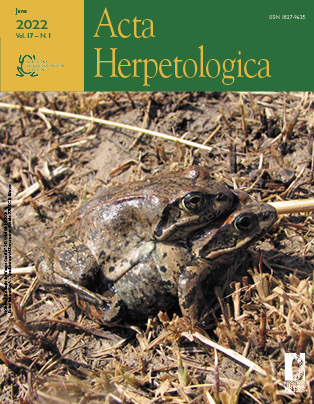The high diversity and phylogenetic signal of antipredator mechanisms of the horned frog species of Proceratophrys Miranda-Ribeiro, 1920 (Amphibia: Anura: Odontophrynidae)
Published 2022-05-02
Keywords
- Ancestral trait,
- anurans,
- Brownian motion,
- defensive strategies,
- evolution
- phylogenetic tree ...More
How to Cite
Abstract
Phylogenetic signals indicate the phenotypic similarity of antipredator mechanisms among related species. Herein, we assessed the antipredator mechanisms of the horned frog Proceratophrys laticeps, compiled a database including closely phylogenetically-related species, and evaluated their phylogenetic signals. Our dataset comprises 80 records for 13 species of Proceratophrys, totalizing 11 antipredator mechanisms and 15 variations of these mechanisms. Six antipredator mechanisms show high similarity in the trees’ roots within Proceratophrys (e.g., aggression, aposematism, camouflage, distress call, immobility, and interrupt calling). Our observations show the first records of antipredator mechanisms for P. laticeps, and the first report of interrupt calling for Proceratophrys genus, contributing to the knowledge on the behavioural ecology of Proceratophrys species, addressing new insights for ecological trait evolution by multiple ancestral states of amphibians.






